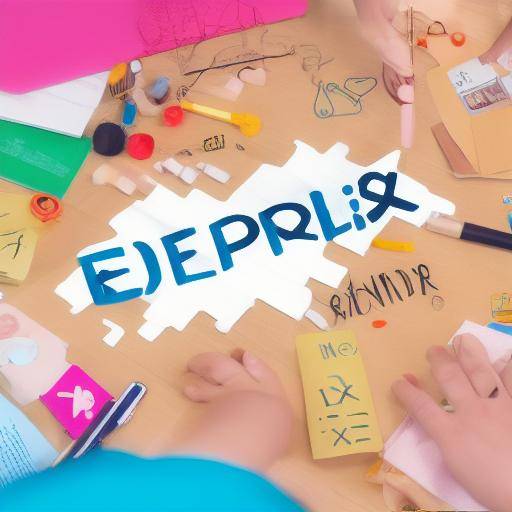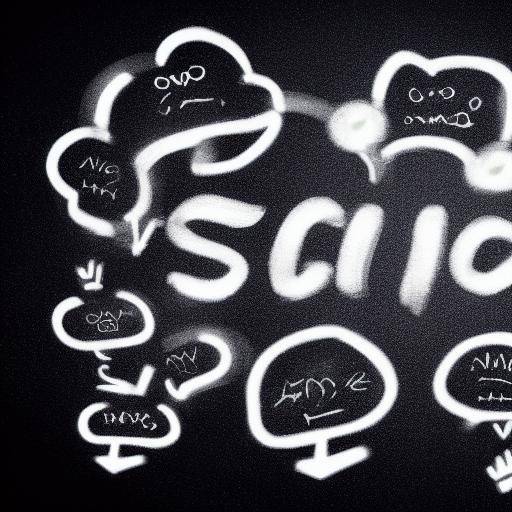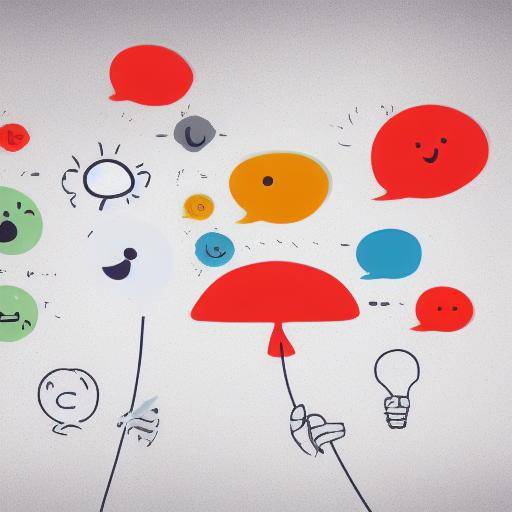
The balance between work and personal life is essential for integral well-being. Emotional intelligence plays a key role in achieving this balance, allowing people to manage work stress, maintain healthy interpersonal relationships and enjoy a full life. In this article, we will explore the importance of emotional intelligence in working-life balance, its benefits, challenges and the impact on everyday life. We will also provide practical advice, expert opinions and future projections in this crucial area of well-being.
Introduction
The constant rhythm of modern life has led to a significant challenge: finding the balance between the demands of work and the need for personal time. This imbalance can generate stress, anxiety and affect mental and physical health. It is here that emotional intelligence comes into play, allowing people to effectively handle labour pressures, maintain healthy relationships and enjoy meaningful life.
History and Background
Emotional intelligence, a concept coined by psychologists Peter Salovey and John Mayer in the 1990s, refers to the ability to recognize, understand and manage one's own and other emotions effectively. This concept has evolved over the years, influencing fields such as psychology, education and the working world.
Recognition of the importance of emotional intelligence has led to its integration into various areas, including talent management, conflict resolution and leadership. The promotion of emotional intelligence in the working environment has proven to improve productivity, job satisfaction and reduce stress.
Analysis in Deep
Emotional intelligence can be decisive in working-life balance. By understanding and regulating one's own emotions, people can better manage stressful situations at work, set healthy boundaries and prioritize their personal well-being. In addition, the ability to empathize with others improves interpersonal relationships, which in turn can positively influence the working environment and at home.
At present, emotional intelligence is considered an essential skill for success both in the personal and professional spheres. Its influence extends to decision-making, effective communication and conflict resolution.
Comprehensive review
The application of emotional intelligence in work-life balance requires an integral approach. It is crucial to implement strategies such as time management, the establishment of clear limits and the practice of emotional self-consciousness. In addition, fostering a working environment that values emotions and promotes the well-being of employees contributes significantly to this balance.
It is essential to recognize that work-life balance is not a static goal, but a continuous process that requires constant adjustments and adaptation to changing circumstances.
Comparative analysis
The integration of emotional intelligence and work-life balance share similarities in their approach to general well-being. Both seek to promote a healthy life, in which work and personal responsibilities are complemented harmoniously. The ability to manage emotions and set limits is essential both in the workplace and in everyday life.
Despite these similarities, emotional intelligence and work-life balance present significant differences in their approach and application. While emotional intelligence focuses on individual emotional abilities, work-life balance seeks to integrate labour and personal spheres to promote holistic well-being.
Practical Tips and Accessible Tips
To achieve an optimal work-life balance, it is essential to develop emotional intelligence. Some practical tips include:
- Practice emotional self-consciousness regularly.
- Establish clear limits between work and personal life.
- Prioritize activities that promote emotional well-being.
- Foster healthy interpersonal relationships in the working and personal environment. These tips can help cultivate emotional intelligence, which in turn will contribute to a more satisfactory balance between work and personal life.
Industry Perspectives and Expert Reviews
Experts emphasize the importance of emotional intelligence in work-life balance. According to studies, employees with high emotional intelligence tend to better manage work stress, maintain positive interpersonal relationships and show greater ability to adapt to changes. In the workplace, promoting emotional intelligence can have a significant impact on organizational culture and employee satisfaction.
Case Studies and Real Life Applications
Numerous case studies show how emotional intelligence contributes to work-life balance in different working and personal environments. From the implementation of emotional welfare programs in companies to the development of emotional skills in educational environments, results suggest that emotional intelligence is a key asset to foster a healthy balance between work and personal life.
Future Trends and Predictions
As society increasingly recognizes the importance of integral well-being, emotional intelligence is expected to play a crucial role in the future. Trends indicate greater integration of emotional intelligence into labour and educational environments, as well as a renewed approach to promoting a healthy balance between work and personal life.
Conclusions
Emotional intelligence plays a key role in the balance between work and personal life. By developing emotional skills, people can better manage job demands, maintain healthy relationships and enjoy a full life. The integration of emotional intelligence into the working and personal environment is essential for promoting comprehensive well-being.
Work-life balance and emotional intelligence are interconnected aspects that directly influence people's quality of life. By recognizing and fostering the importance of emotional intelligence, we can move towards a future in which the balance between work and personal life is an attainable reality for all.
FAQs
What is work-life balance and why is it important?
Work-life balance refers to the harmony between labor responsibilities and personal life. It is important because it promotes integral well-being, reduces stress and contributes to greater overall satisfaction.
What is the relevance of emotional intelligence in the working environment?
Emotional intelligence is crucial in the working environment, as it allows employees to manage stress, maintain healthy relationships and improve productivity.
What are some practical tips for maintaining a healthy work-life balance?
Some practical tips include setting clear limits between work and personal life, prioritizing emotional well-being and practicing emotional self-consciousness on a regular basis.
How does emotional intelligence promote work-life balance?
Emotional intelligence allows people to better manage work stress, establish healthy boundaries and maintain positive interpersonal relationships, which contributes directly to a more satisfactory balance between work and personal life.
What is the impact of emotional intelligence on integral well-being?
Emotional intelligence has a significant impact on integral well-being, as it influences how people manage stress, interact with others and adapt to changing situations, which in turn contributes to a more satisfying life.
What are future trends related to emotional intelligence and work-life balance?
It is hoped that in the future there will be a greater integration of emotional intelligence into labour and educational environments, as well as a renewed approach to promoting a healthy balance between work and personal life.
Emotional intelligence plays a crucial role in work-life balance, directly influencing quality of life and integral well-being. By recognizing their importance and learning to develop emotional skills, people can cultivate a more balanced, satisfactory and meaningful life.
Conclusion
The balance between work and personal life is fundamental for integral well-being. Emotional intelligence, by allowing people to manage labour stress, maintain healthy relationships and enjoy a full life, plays an essential role in this balance. By integrating emotional intelligence into the working and personal environment, it is possible to promote a healthy balance that benefits all areas of life.
The aspirations of a balanced life between work and personal life, supported by emotional intelligence, entail tangible benefits that cover emotional, social and labour aspects. In the constant search for this balance, emotional intelligence emerges as an invaluable tool that promotes general well-being.






















































